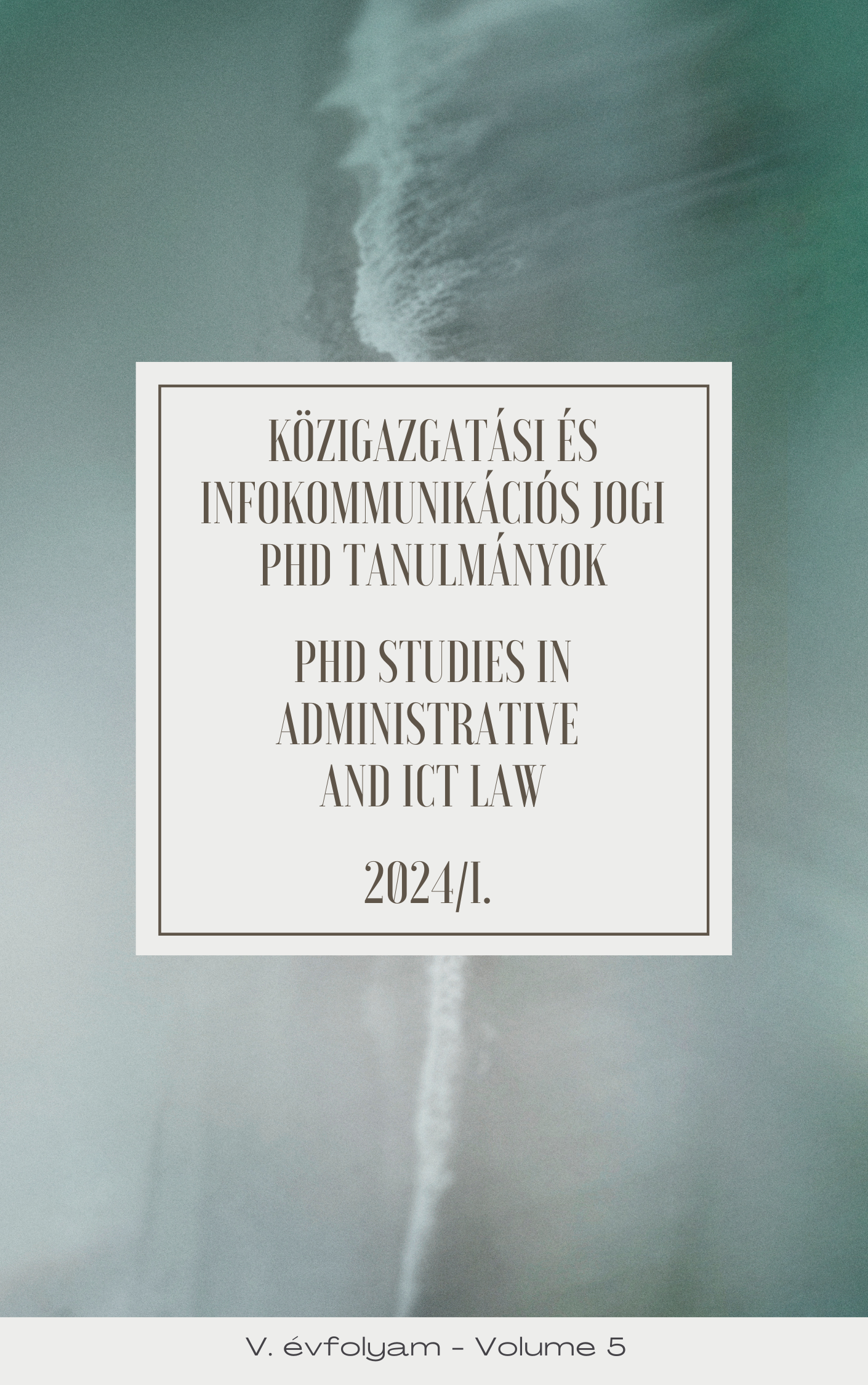Digitális közszolgáltatások, e-egészségügy Magyarországon
Az EESZT bevezetése és fejlesztései, az e-egészségügy digitális jövője
DOI:
https://doi.org/10.47272/KIKPhD.2024.1.4Kulcsszavak:
Digitális közszolgáltatások, E-egészségügy, DESI-mutatók, COVID-19, KözbeszerzésAbsztrakt
Jelen cikkben a hazai digitális gazdaság, digitális közszolgáltatási dimenziójának e-egészségügyi aldimenziója kerül bemutatásra – ezen belül is az Elektronikus Egészségügyi Szolgáltatási Tér (EESZT) bevezetésére és továbbfejlesztéseire fókuszálva, kitérve az e-egészségügy és mesterséges intelligencia lehetséges találkozási pontjaira is. Természetesen, sosem elég egy (elektronikus) rendszert bevezetni és fejleszteni – használni is kell, lehetőség szerint jól és hatékonyan. Az automatizált eszközök és a technológia adta lehetőségeket lehető legszélesebb körben kihasználó rendszerben minden világos és érthető kell legyen annak érdekében, hogy valamennyi (minél több) felhasználó megtalálja és értse benne a helyét, illetőleg éljen a rendszer nyújtotta lehetőségekkel. Az EESZT-t a fentiekkel összefüggésben a bevezetése utáni egy-két évben számos kritika érte, cikkemben ezekre is kitérek, illetőleg vizsgálom a lakosság oldaláról a „fel nem használás” lehetséges okait: életkor, iskolai végzettség és település típus, mint a leginkább meghatározó tényezők alapján.
Letöltések
Hivatkozások
Cseh Gergely: A digitális gazdaság és társadalom fejlettségét mérő mutató – Magyarország európai uniós teljesítménye a digitalizált világban. Miskolci Jogi Szemle 15(1, különszám), 2020, 51. o.
Hohmann Balázs: The Impact of the Government's Restrictive Measures on the Transparency of the Administrative Proceeding in the Context of the COVID-19 Pandemic. In: Hohmann Balázs – Jeton Shasivari (Eds.): Expanding Edges of Today's Administrative Law. Bucharest, ADJURIS, 2021. 154-158. o.
Hohmann Balázs: A digitalizáció személyességi, átláthatósági követelményei a helyi, területi közigazgatási szervek működésére. In: Csefkó Ferenc (Szerk.): Szemelvények a helyi és területi közigazgatás aktuális kérdéseiről. Pécs, Jövő Közigazgatásáért Alapítvány, 2022. 207-209. o.
Balogh Judit, et. al.: A mesterséges intelligencia alapú megoldások fejlesztése és bevezetése az egészségügyben – kézműves manufaktúrától a gyártósorig? IME 21(2), 2022, 58. o. https://doi.org/10.53020/IME-2022-206
Huma Saeed, et. al.: Blockchain technology in healthcare: A systematic review. PLoS One, 17(4), 2022, e0266462. https://doi.org/10.1371%2Fjournal.pone.0266462
Peizhi Tao, Na Liu, Chunling Dong: Research progress of MIoT and digital healthcare in the new era. Clinical eHealth, 2024/7. 1-4. o. https://doi.org/10.1016/j.ceh.2023.11.004
Downloads
Megjelent
Verziók
- 2024-04-30 (4)
- 2024-06-19 (3)
- 2024-06-19 (2)
- 2024-04-30 (1)
Hogyan kell idézni
Folyóirat szám
Rovat
License
Copyright (c) 2024 Közigazgatási és Infokommunikációs Jogi PhD Tanulmányok

This work is licensed under a Creative Commons Attribution-NonCommercial-ShareAlike 4.0 International License.
A cikk felhasználási jogaira bármely harmadik fél számára az első közzétételt követően a Creative Commons Attribution-NonCommercial-ShareAlike 4.0 (CC-BY-NC-SA 4.0) licenc feltételek az irányadók.














